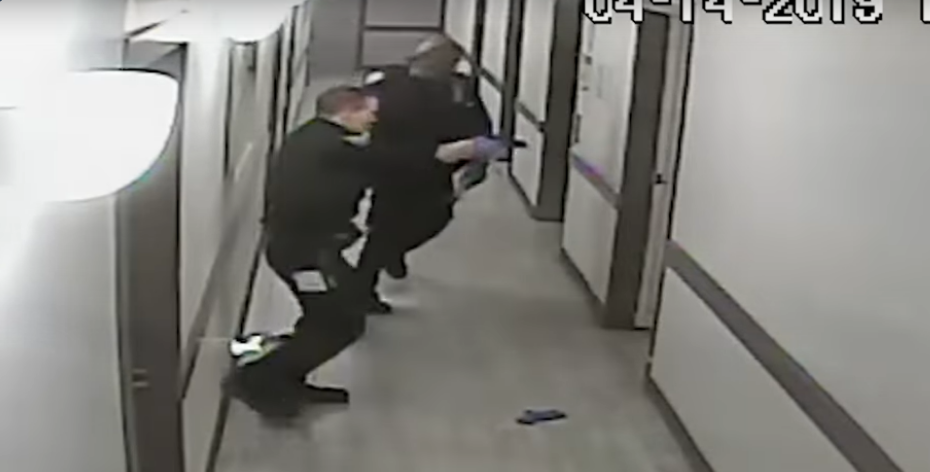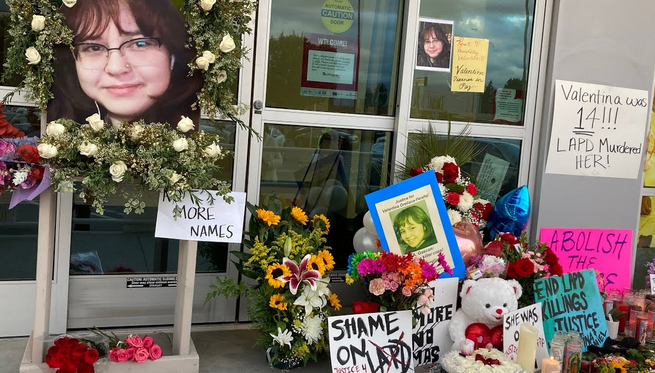[Environmental Racism]
Sharon Lavigne, president of RISE St. James: “We continue to fight for our lives against these toxic industries, and now we are fighting for our ancestors too. They had no choice about where they lived, where they died, or where they were buried, but we are going to fight for the respect that their resting places, and our homes deserve.”
Photo: Facebook
This week, residents of St. James joined with environmental justice and legal organizations to urge the St. James Parish Council to rescind its decision to allow FG LA, a member of the Taiwanese-based Formosa Plastics Group giant, to build a massive chemical facility in a predominantly African-American community.
In letters to the council, they cite new and alarming information about the levels of cancer-causing chemicals the facility would emit, the company’s failure to follow through on its promise to alter its layout to lessen exposure to school children and residents nearby, and its failure to alert Parish officials and residents of the existence of graves of enslaved people.
The requests by RISE St. James, Louisiana Bucket Brigade, Earthjustice, and the Center for Constitutional Rights come after recent reports by ProPublica and The Advocate that the area in which Formosa wants to build is already “more toxic with cancer-causing chemicals than 99.6% of industrialized areas of the country.”
That reporting included an expert study which showed that if allowed to operate, the plant would “more than triple” the toxic levels of cancer-causing chemicals in an area one mile east of the facility, and double the levels faced by residents across the Mississippi River. This information was not provided by Formosa Plastics when the council gave the land use approval in January 2019.
“We continue to fight for our lives against these toxic industries, and now we are fighting for our ancestors too,” said Sharon Lavigne, founder and president of RISE St. James. “They had no choice about where they lived, where they died, or where they were buried, but we are going to fight for the respect that their resting places, and our homes deserve.”
“Formosa Plastics has hidden the truth from the parish council and from the residents of St. James,” said Anne Rolfes of the Louisiana Bucket Brigade. “Formosa spokespeople have never mentioned the extent of the cancer risk and never uttered a word about the gravesites, even though they knew they were there. Formosa is not worthy of St. James Parish. They should be run out of town.”
Earthjustice and the Center for Constitutional Rights sent letters on behalf of the groups urging the council to rescind its decision to grant the company’s land use application.
“The council must take stock of the fact that Formosa’s application for a state construction permit contradicts its promise to the parish that it had changed its layout and moved units away from an elementary school,” said Corinne Van Dalen, staff attorney with Earthjustice. “In fact, the state permit would allow Formosa Plastics to build some of its most toxic units on the side of its 2,400-acre site that is closest to the children. These children and the people who live nearby are already inundated with cancer-causing pollutants from existing plants and are saying enough is enough.”
RISE St. James and the Center for Constitutional Rights also alerted the council of the fact that Formosa Plastics knew of the location of burial grounds of enslaved people as early as July 2018 and did not notify residents, community groups, or the parish council. RISE St. James learned of the burial grounds recently and sent comments to the Louisiana Department of Environmental Quality last week.
“It is no exaggeration to say that this facility presents an existential threat to the surrounding communities, who have already borne a heavy toxic burden,” said Pam Spees, senior staff attorney with the Center for Constitutional Rights. “It’s not too late— the council must do the right thing now to prevent irreparable harm in the present and to begin to reckon with the past in ways that honor those who suffered immeasurably under slavery.”
The Center for Constitutional Rights works with communities under threat to fight for justice and liberation through litigation, advocacy, and strategic communications. Since 1966, the Center for Constitutional Rights has taken on oppressive systems of power, including structural racism, gender oppression, economic inequity, and governmental overreach. Learn more at www.ccrjustice.org.













I havе reaԀ so many articles or reviews on the topіc of the blogɡer loverѕ but this articlе is
in fact а good pоѕt, keep it up.